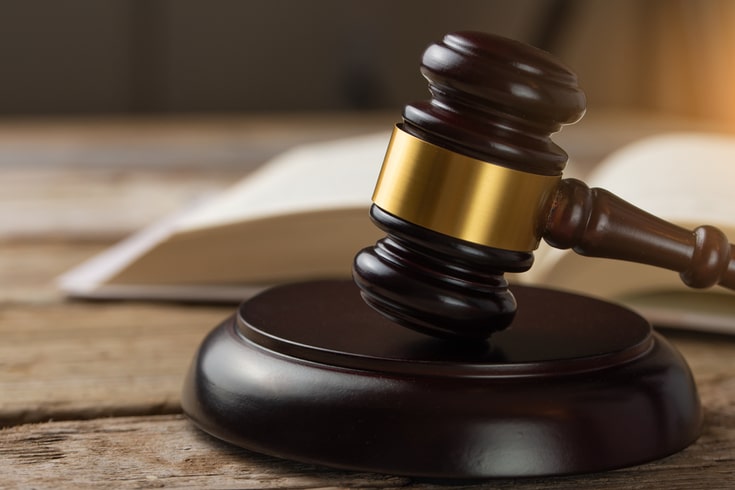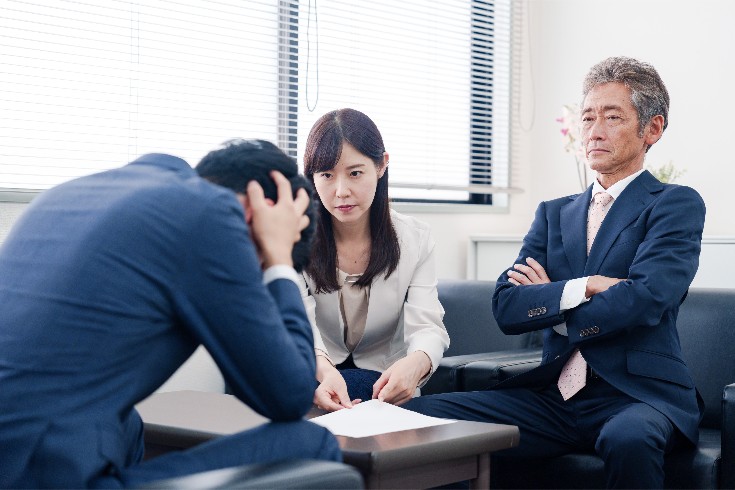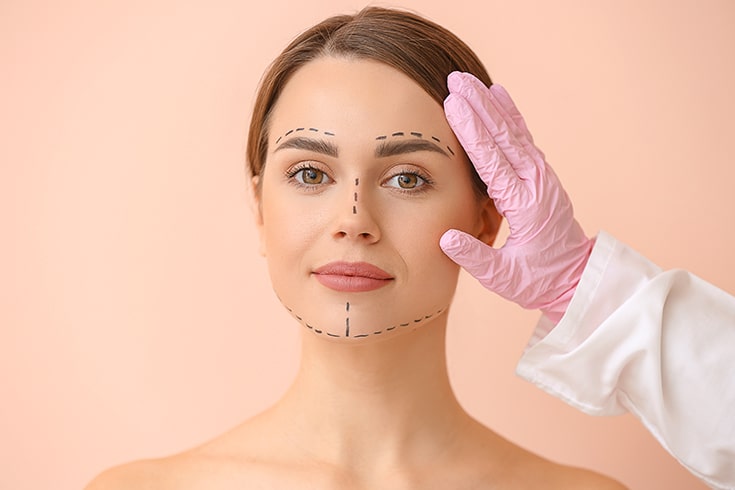Disclosing Addresses and Real Names? When Does Reporting Crime Cross the Line into Privacy Infringement?

Facts such as “being convicted of a crime” or “being arrested” are generally things that people do not wish to be made public. Reporting these facts with real names can lower a person’s social reputation and can also constitute an invasion of privacy.
However, in crime reporting, it is generally accepted that defamation or invasion of privacy does not occur even if the suspect or defendant is reported by their real name. This is due to reasons such as the real name itself being a “fact related to public interests”, or the benefits of disclosing the real name outweighing the benefits of not disclosing it.
So, to what extent is reporting that involves privacy allowed in real-name reporting? There is a recent case where this issue was disputed in court.
Court Proceedings
A Brazilian couple, the husband running a used car sales business and the wife a food sales business, were arrested on June 20, 2018, on suspicion of violating the Japanese Stimulant Drug Control Law and the Japanese Cannabis Control Law. They were detained but released on July 10 of the same year with their case pending, and on August 2, they were not prosecuted due to insufficient suspicion.
The Shizuoka Shimbun, a daily newspaper mainly read in Shizuoka Prefecture, published articles on the morning editions of July 5 and 6 of the same year. In the morning edition of July 5, the article included the land number of the suspects’ address (hereinafter referred to as “Article 1”). In the article of July 6, it was written “Possibly sold drugs to more than 60 people,” and detailed information about the crime was included in the main text (hereinafter referred to as “Article 2”).
Therefore, the couple claimed that Article 1, which included their land number, infringed on their privacy, and Article 2 defamed their reputation. They filed a lawsuit against the Shizuoka Shimbun for damages based on tort, demanding compensation.

Claims of Both Parties
The plaintiff argued that the Shizuoka Newspaper, in Article ①, not only published the plaintiff’s name, age, and occupation, but also the detailed address, which is subject to legal protection as information related to the plaintiff’s privacy. They claimed that there was absolutely no need to publish the detailed address in Article ①, and in fact, most newspapers do not disclose the detailed address of the suspect in crime reports. Therefore, they argued that Article ① illegally infringes on the plaintiff’s privacy beyond the limits recognized for crime reporting.
In response, the defendant, Shizuoka Newspaper Company, took a general stance that crime reporting, especially arrest reporting, has significant importance in informing the public about the exercise of police power by the state, placing it under public scrutiny, and ensuring the appropriateness of investigations by investigative agencies, which could become serious restrictions on the rights and freedoms of the public if not properly exercised.
Furthermore, they argued:
The most accurate way to identify the arrested person is to report all of their address. If the address reporting is limited to a part, there is a concern about reputational damage to third parties with the same or similar names in the same area. To prevent such damage, it is a basic and important matter to identify the suspect by reporting not only their name, age, and occupation, but also all of their address.
Shizuoka District Court, May 7, 2021 (2021) Judgment
They also argued that for the plaintiffs, their age, occupation, and address are information with little confidentiality that they themselves disclose as needed and that third parties can access. They argued that it is hard to imagine any specific harm caused by the disclosure of this information, and that the so-called defense of truthfulness regarding defamation is established for Article ①. In such cases, they believe that torts based on privacy infringement should not be established either.
The defense of truthfulness means that defamation is not established when the fact pointed out is related to public interests (public nature), the purpose of pointing out the fact is solely to serve the public interest (public interest), the fact pointed out is true (truthfulness), or there is a reasonable reason to believe that the fact is true (truthfulness).

Court Rulings on Privacy Infringement
The court has ruled that while an individual’s address is simple information used for personal identification and does not necessarily need to be kept confidential, it is natural for a person to not want this personal information disclosed to others they do not wish to share it with. The expectation of this privacy should be protected, and the address is subject to legal protection as information related to the plaintiffs’ privacy (Supreme Court ruling on September 12, 2003 (Gregorian calendar year)). In cases like Article 1, where the plaintiffs were arrested on suspicion of possessing the stimulant drug and cannabis in question for profit, and their address down to the lot number is disclosed, it cannot be denied that there is a possibility that third parties may visit the plaintiffs’ residence for protest, harassment, or out of curiosity, or send mail, threatening the peace of their private lives.
Furthermore, the plaintiffs are each running a business continuously at their homes at the disclosed addresses, and are living with four underaged children. Therefore, the negative impact on their private lives due to the disclosure of their address down to the lot number is significant. Article 1 was recognized as an illegal act that illegally infringes on the plaintiffs’ privacy.
As for the defendant’s claim that the truth defense regarding defamation is established in relation to Article 1, and that in such cases, an illegal act based on privacy infringement should not be established, the court stated that the protected legal interests in cases of defamation and privacy infringement are different. Therefore, even if the illegality is denied in the case of defamation, it does not necessarily mean that the illegality is denied in the case of privacy infringement.
Court’s Decision on Defamation
Article ②, under the headline “Drug trafficking to over 60 people?”, states in the body of the text that the plaintiffs are:
- “Believed to be the leaders of a drug trafficking group with over 60 customers in the prefecture, as revealed in interviews with related parties on the 5th”
- “The prefectural police are investigating with the belief that they have made at least several million yen in sales”
- “According to related parties, the two are believed to have instructed two Brazilian men from the same trafficking group, who were indicted for violations of the Stimulant Control Act, to sell drugs to Brazilians and Filipinos in the prefecture over 600 times”
- “They have been repeatedly trafficking for over a year, and it is said that they delivered drugs in response to phone orders from customers”
All of these are not definitive statements, but are written in a form that suggests the police have suspicions.
The court did not recognize defamation for the following reasons:

The Shizuoka District Court found that these articles, when read with ordinary care and understanding by a general reader, only give the impression that the plaintiffs are suspected of being the leaders of an illegal drug trafficking group selling to over 60 people in Shizuoka Prefecture. The articles highlight the fact that the investigative authorities are investigating the plaintiffs under suspicion of being the leaders of an illegal drug trafficking group in Shizuoka Prefecture. It is clear that this lowers the social evaluation of the plaintiffs and defames their reputation.
On the other hand, the court did not find it appropriate to interpret reports made to the extent that police officials have suspicions as proving the truth of the criminal act itself. The court cited the confessions of the actual perpetrators of drug trafficking and found that there were reasonable grounds to suspect the plaintiffs of committing a crime. As of July 6, 2018 (Heisei 30), when Article ② was published, there was a reasonable suspicion that the plaintiffs were the leaders of an illegal drug trafficking group in Shizuoka Prefecture, selling illegal drugs to over 60 people. Therefore, the court did not recognize defamation.
Judgment Regarding Damages
The court has ruled that,
[Quote] Article ①, which published the full addresses of the plaintiffs along with the fact that they were arrested for illegal drug possession, was published in a daily newspaper distributed mainly in Shizuoka Prefecture. It is easy to imagine that the plaintiffs felt anxiety that their peace of mind in their private lives was threatened against their will by the wide disclosure of their full addresses. It can be said that they suffered mental distress due to the publication of Article ①. Shizuoka District Court, May 7, 2021 (Gregorian calendar year) Judgment
On the other hand, considering the circumstances such as the fact that no letters with the purpose of harassment were delivered to the plaintiffs’ residence after the publication of Article ①, and that there was only one instance of a third party visiting the plaintiffs’ residence asking for drugs to be sold, and that there is no objective evidence sufficient to acknowledge that the peace of mind in the plaintiffs’ private lives was actually threatened due to the publication of the plaintiffs’ addresses in Article ①, the court ordered Shizuoka Newspaper Company to pay a total of 660,000 yen, including 300,000 yen each for mental distress due to privacy infringement and 30,000 yen each for attorney fees, to each plaintiff.
Summary: Balance between Public Interest and Privacy Rights Should be Considered in Crime Reporting
This case involves the reporting of facts related to a criminal case that should be the subject of public interest or criticism. Even if the purpose of publishing in the newspaper is recognized as serving the public interest, displaying the address down to the lot number clearly exceeds the limit and can be said to illegally infringe on privacy.
There have been many criticisms and questions about the use of real names in reporting in the past. Even if it is allowed, the scope should be strictly protected.
Introduction to Our Firm’s Measures
Monolith Law Office is a legal office with high expertise in both IT, particularly the Internet, and law. The number of newspaper articles being reprinted as online articles on web media has been increasing. If an article is posted on web media, it can spread rapidly and potentially cause serious damage as a “digital tattoo”. Our firm provides solutions for dealing with “digital tattoos”. Details are provided in the article below.





















